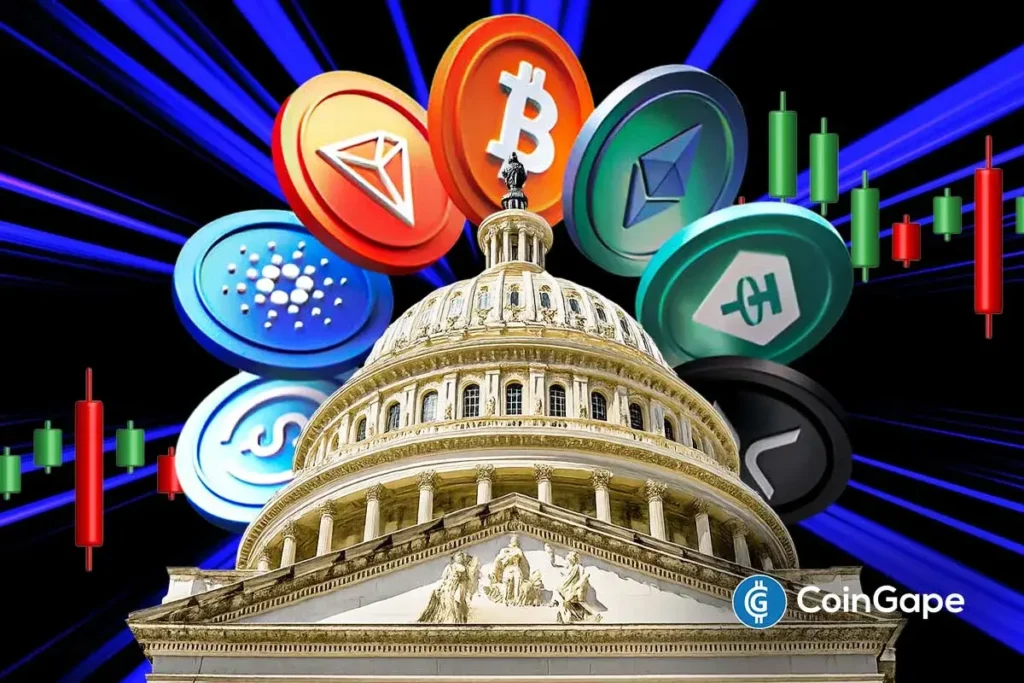Senate Advances Crypto Market Structure Bill: A Bipartisan Effort Towards Regulation
As the cryptocurrency market continues to evolve, the U.S. Senate is making significant strides in shaping the regulatory framework for this burgeoning sector. The crypto market structure bill is on the verge of a critical markup session scheduled for December 8, signaling renewed dialogues between Republicans and Democrats. This renewed momentum comes after months of stalled discussions, reflecting a growing bipartisan acknowledgment of the need for clearer regulatory guidelines in the crypto market.
Renewed Legislative Activity
Recent reports indicate that preparations are underway for the Senate to review the crypto market structure bill next month. Eleanor Terrett, a Fox reporter, shared insights from unnamed lawmakers confirming that discussions are progressing swiftly in anticipation of the December 8 meeting. Notably, this timeline aligns with the goals of Senator Tim Scott, the leading Republican on the Senate Banking Committee, who has been advocating for the bill’s review and potential passage before the year’s end. This commitment underscores the urgency felt by lawmakers to establish robust trading rules and regulatory frameworks for the nation’s cryptocurrency landscape.
Clarifying Regulatory Frameworks
The forthcoming bill is expected to address several pivotal issues, particularly the definitions surrounding trading rules and the responsibilities of regulatory overseers. Importantly, the legislation seeks to demarcate the regulatory boundaries of the crypto market, a requirement that has become increasingly crucial as the industry matures. As lawmakers work to finalize the bill, there is an active debate raging over key aspects such as the classification of tokens as commodities or securities. This ambiguity has led to confusion in enforcement efforts, impacting both consumers and industry participants.
Bipartisan Collaboration in Congress
The evolving discussions indicate a significant shift in Congress’s approach to crypto regulation. There appears to be broader support for the market structure bill, with senators expressing increasing alignment regarding the necessity for a cohesive regulatory framework. Senator John Boozman, chair of the Senate Agriculture Committee, has voiced optimism that his committee’s proposed language will be ready for review in early December. The cooperative effort between the Banking and Agriculture Committees reflects a shared understanding that fragmented regulations will no longer suffice as the market continues to grow.
Opportunities for Further Discussion
The Senate calendar is favorable for further discussions on the crypto bill before lawmakers break for the Christmas holiday. In addition to the scheduled review on December 8, there is an additional window of opportunity for debate within the following two weeks. While specific dates may fluctuate due to political dynamics and drafting delays, these scheduled sessions signify a concerted effort by Congress to enact significant improvements to the bill before the year’s conclusion.
Challenges Ahead
While the prospects for advancing the crypto market structure bill look promising, challenges remain. Disagreements among lawmakers regarding definitions, consumer protections, and the scope of regulatory authority continue to provoke complex discussions. The ongoing uncertainty surrounding the classification of digital assets may influence enforcement strategies and overall market stability. Therefore, achieving a consensus will be essential for ensuring a balanced and effective regulatory environment that fosters innovation while safeguarding consumer interests.
The Path Ahead for Crypto Regulation
As the Senate approaches critical milestones in the legislative process for the crypto market structure bill, the importance of decisive regulatory measures cannot be overstated. Through bipartisan cooperation and ongoing dialogue, there is an opportunity to create a comprehensive framework that navigates the complexities of cryptocurrency regulation. By clearly defining responsibilities and regulatory boundaries, lawmakers can instill greater confidence in the market, paving the way for its growth and integration into the broader financial landscape. The next few weeks are pivotal, and the actions taken by Congress could significantly shape the future of cryptocurrency in the United States.


